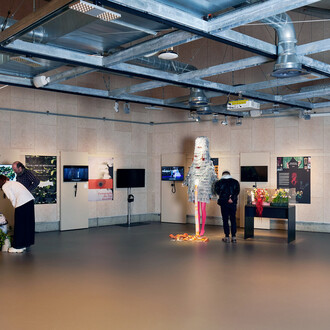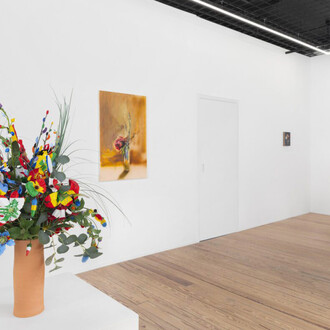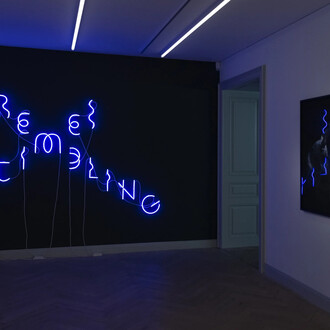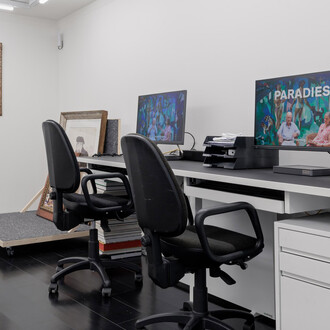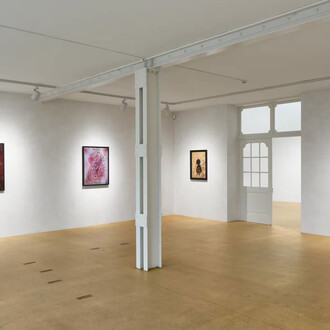After Dark is a major event for the FRAC Ile-de-France, and also represents a first for the Mamco with this unusual invitation offered to another institution to come and present its collection within its walls. The project is part of the Museum’s 20th anniversary celebrations.
In an area—the museum’s fourth floor—completely plunged in darkness, the exhibition presents a set of works which all share in common the fact that they give glimpses of certain forms of reality whose meaning tends irremediably to elude us. Be it a message written on a wall before being deliberately erased (Sans titre, Jimmy Robert), a series of flat wooden crates containing objects which we shall never have access to (Sans titre, Maurice Blaussyld), a group of people who will always be anonymous (Around, Ulla von Brandenburg), or a set of images visible only for a split second as they are swept by a beam of light (Polka Dot, Mark Geffriaud), what is regularly at issue is an approach, clues, and signs that are more than evocative, but which never totally reveal what they nevertheless seem to want to show us.
These works seem to be telling us that the essence lies elsewhere. Not in the definitive resolution of a set of facts which will be transferred to us, but in the very enigma which is proposed to us each and every time.
In this sense, the field is open to plenty of hallucinatory experiences which do not leave visitors unscathed: the soliloquy of a man exhorting us to share in his delirium (When I see You…, Elise Florenty/Marcel Türkowsky), a piano delivers a threnody whose origins are as precise as they are improbable (Musique pour un cheval centenaire, Benoît Maire/Etienne Chambaud), superpositions of various photographs create holes of a monstrous nature (Masks, John Stezaker), the memory of a public reading gives way to the vision of a dwelling filled with ghosts (The two Stories, Alejandro Cesarco). And if there are, in spite of everything, beliefs and decoys, the works of João Maria Gusmão and Pedro Paiva— pastmasters in this art—draw us into dizzy-making duplications and mises en abyme… If a share of uncertainty and a certain obscurity seem necessary for an understanding of the world—Plato’s cave is not far away—After Dark offers many blurred perspectives enabling us paradoxically to see a future where there is light. Somewhat like the work of Tobias Rehberger (Nicolai’s Sunny 09.02.72 (Krylow), where the ultimate light perception of a man is revealed to us, and perpetuated.












